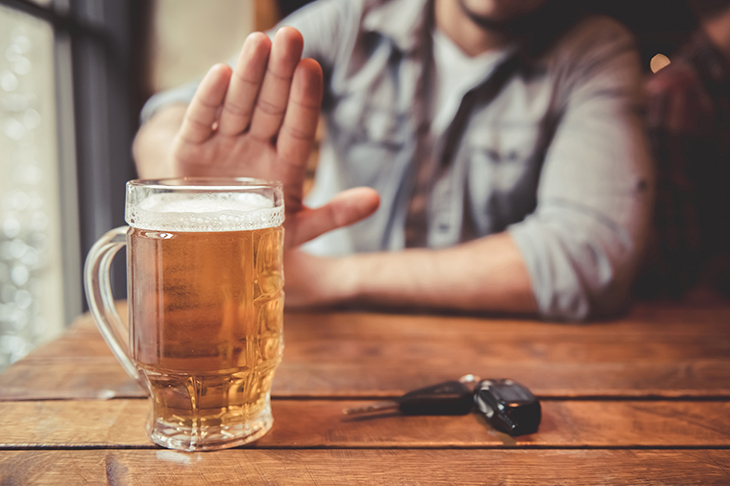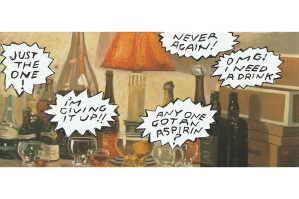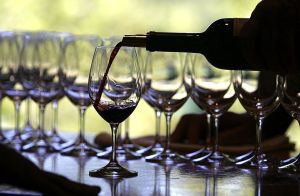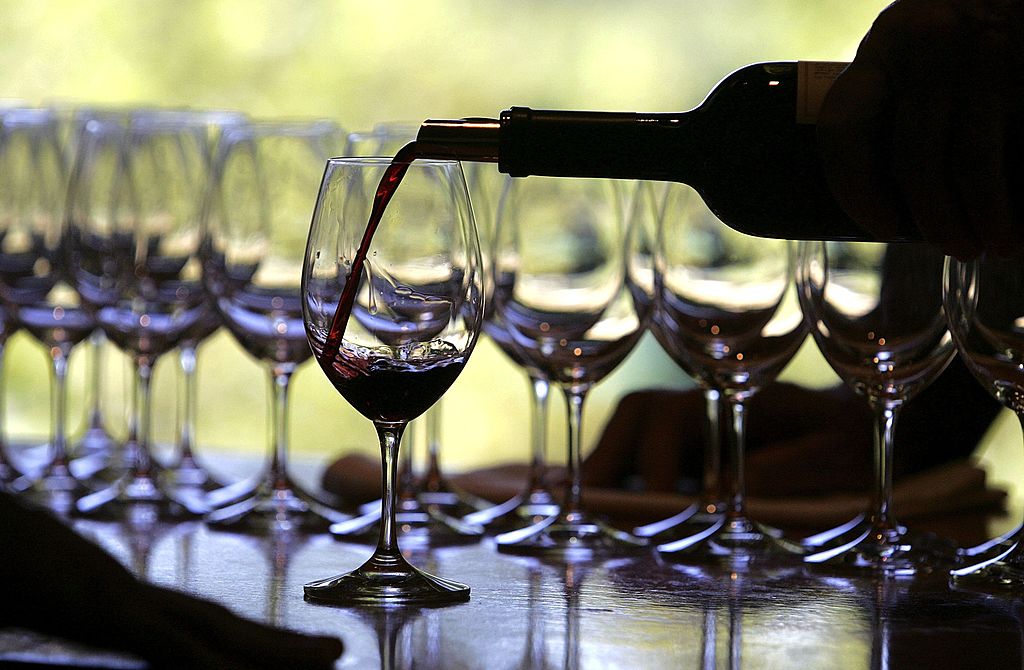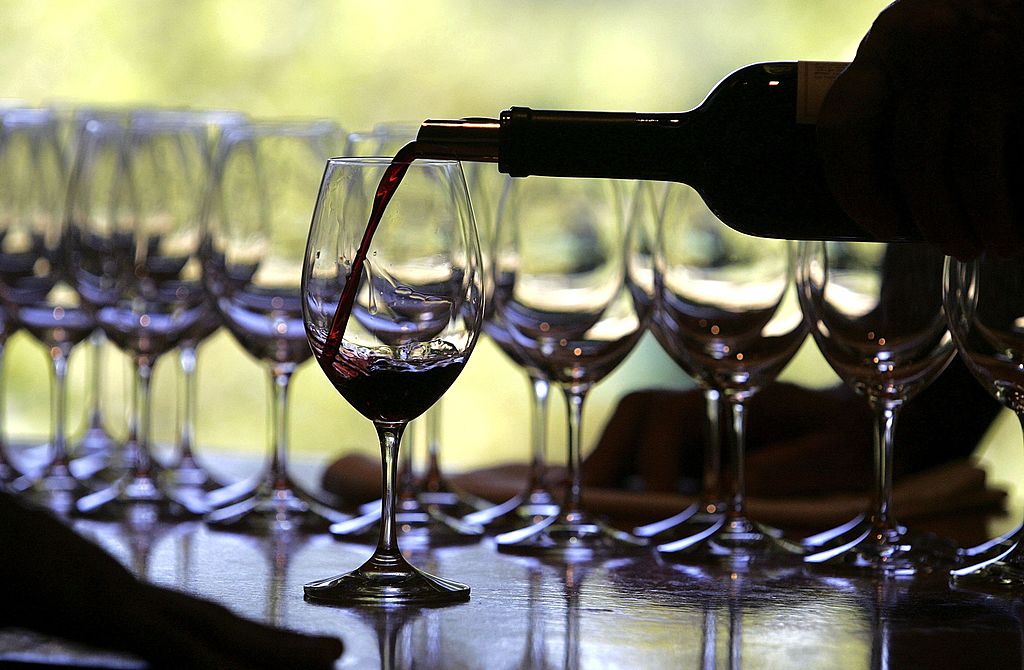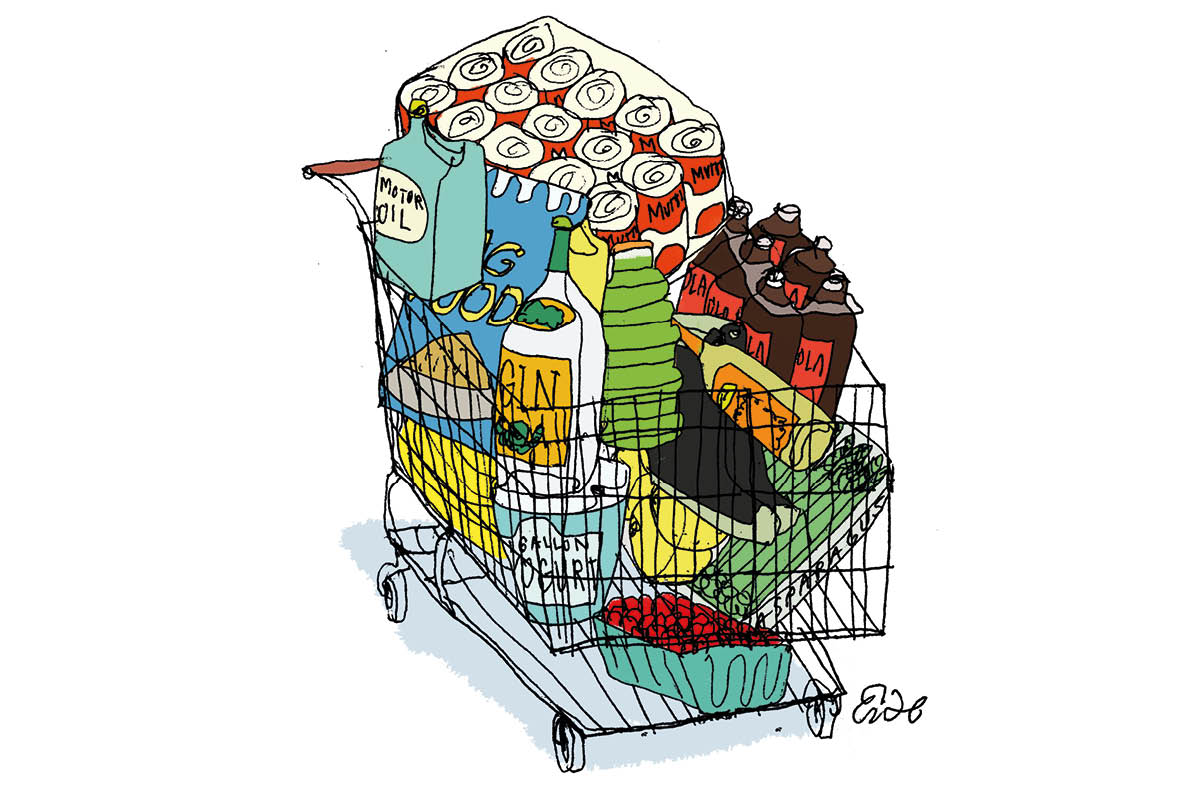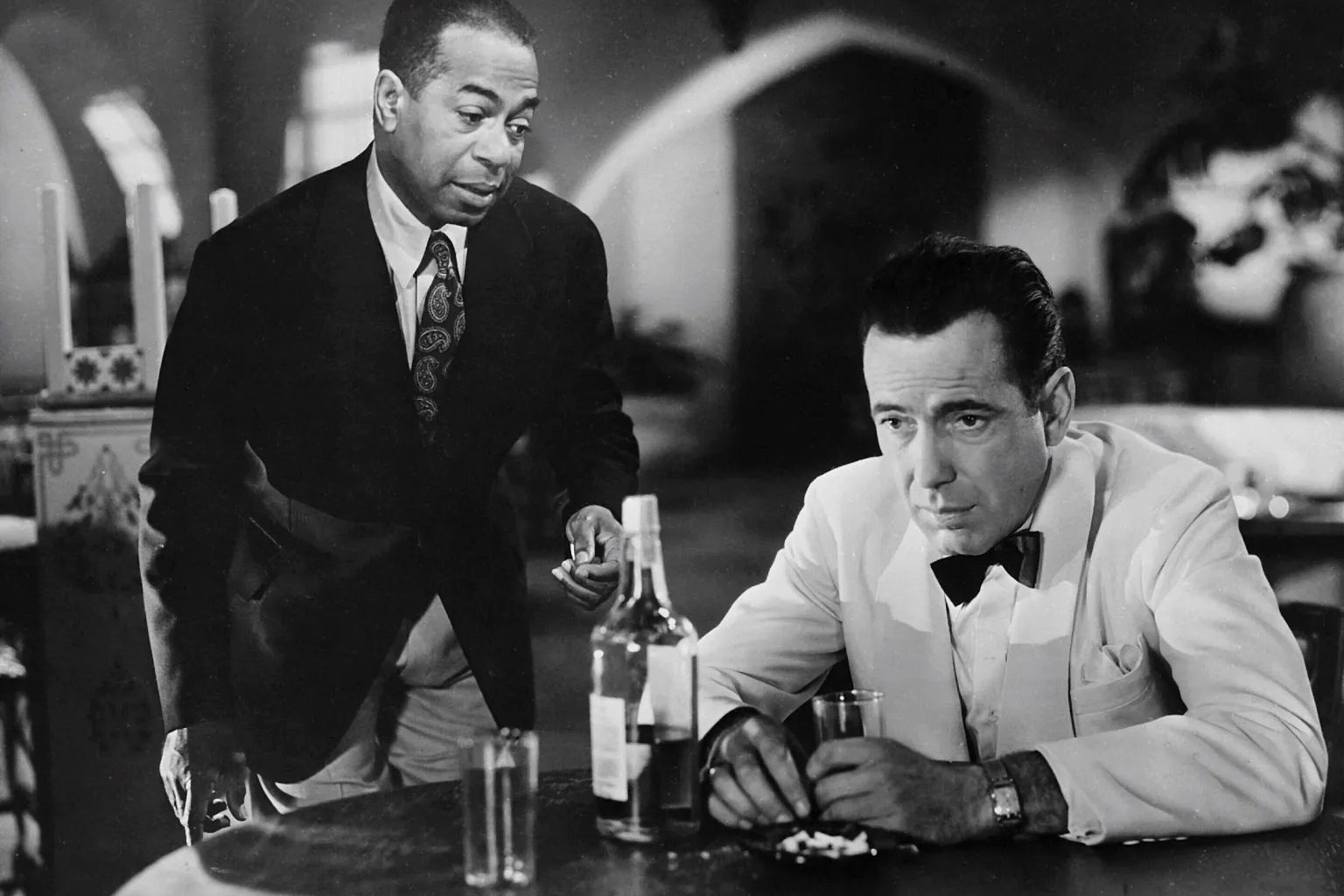Have you noticed how nearly everyone in the media has won an award? Is there even such a thing as a documentary maker who isn’t ‘award-winning’? Most journalists my age have picked up some sort of bauble, even if it’s only from Julia Hobsbawm’s risible lefty ‘Comment Awards’.
I sulked about this for years until a colleague reminded me that I did have an award: Private Eye’s ‘drunkest person at the Spectator party 1991’. I’d forgotten, perhaps because there was no awards ceremony. Shame. I like to think of myself clutching the prize — perhaps a tasteful statuette of someone doing a technicolor yawn — while insisting modestly that it should really have gone to the vicar who fell backwards into the rose bushes.
Likewise, I was cross that I had never merited a single article about me in a national newspaper. Again, not true. I was once in the Sun, no less. It’s not in my cuttings book, but from memory the headline was ‘Journalist’s “joke” costs him £1,000’. I was done for drunken driving — if you can call it driving, because I’d failed my test three times and was too plastered to move my mate’s car more than a few feet before I toppled out of the open door into the arms of a lurking copper. My brilliant defense that it was a ‘joke’ failed to sway the magistrate. I was religious affairs correspondent of the Daily Telegraph at the time. ‘You idiot,’ said the news editor. ‘If you’d told me in time I could easily have kept it out of the Sun.’
I’m not sure what year it happened, but it must have been before April 15 1994, because that was the last time I drank alcohol. ‘Sober for a quarter of a century — what an achievement!’ say my friends — and I have to explain that my continuing bad habit of gobbling codeine painkillers and benzodiazepines hardly counts as sobriety. As for the ‘achievement’, well, that’s nice of them, but basically I’m just not doing something I don’t want to do.
When a waiter waves a glass of champagne under my nose, I don’t think: ‘Ooh, that’d be nice, maybe just the one, but I mustn’t because tragically I’m an alcoholic.’ I think: ‘You bastard, alcohol. Don’t think you can sidle up to me at a party and make friends again, not after what you did to me.’
I’m going to spare you what’s known in Alcoholics Anonymous as a ‘drunkalogue’ — a recitation of all the disasters caused by alcohol. Or, rather, caused by me drinking alcohol. The glass didn’t levitate to my lips. On the other hand, my 15 years of heavy boozing wasn’t an exercise in wickedness, even though I did plenty of wicked things when I was smashed.
One of the tortures of all addictions, not just alcoholism, is trying to assign moral responsibility. It’s torture especially for the family and friends of addicts. To what degree should they blame their loved one? The cruel unpredictability of addictive behavior means they keep changing their minds. One moment it’s ‘I can’t believe he’s let us down again’, then ‘Now I can see that this is a disease, we mustn’t blame him’, and then ‘After all that money we spent on rehab he does this to us!’ I’ve heard this angry confusion so many times, and it’s painful — though not as offensive as the dogma from opposing hardliners in the debate over addiction. One side tells us that there’s no such thing as addiction, which is just a euphemism for reckless selfishness; the other, representing the rehab industry, has turned it into a ‘disease’ which is best treated by direct debit.
I’ve tried working out how much I was at fault. That’s tricky, because semi-blackouts reduce memories to a surreal dream. Did I really go up to Robbie Coltrane in the Groucho Club and tell him I admired him for coming to terms with weighing 400 pounds? I did, because a slightly more sober friend watched me. How did it go down? ‘Trust me, you don’t want to know.’
So have I learned any lessons from 15 years on the bottle and 25 years off it? Yes, simple ones. First, there’s no clear distinction between a ‘drink problem’ and alcoholism (or whatever you want to call it: it’s just a useful word, not a proper clinical term). When I walk into a reception, I can spot the young diary hack who has a nasty relationship with booze. They don’t realize it, but they’ll come to hate alcohol, even if they can’t live without it.
That’s my second point. Once it takes over, alcohol is as frightening as almost any other addictive substance, and that includes heroin and cocaine. Perhaps crystal meth is worse.
Finally, and this is a bit gloomy, the ordeal of hopeless drunkenness breaks something in you. Or it did in me, anyway: years of not giving a stuff about other people leave their mark. Ask anyone who knows me. But at least I can try to behave responsibly, which was far too much effort when I was hungover. I managed to visit my mother in her nursing home — though not as often as I should have — and one of the last things that penetrated her dementia was the knowledge that I still hadn’t picked up a glass.
She died last year. Afterwards, my beloved sister was diagnosed with advanced ovarian cancer. If you’ll excuse the cliché, I can be there for her. As opposed to being dead.
This article was originally published in The Spectator magazine.



